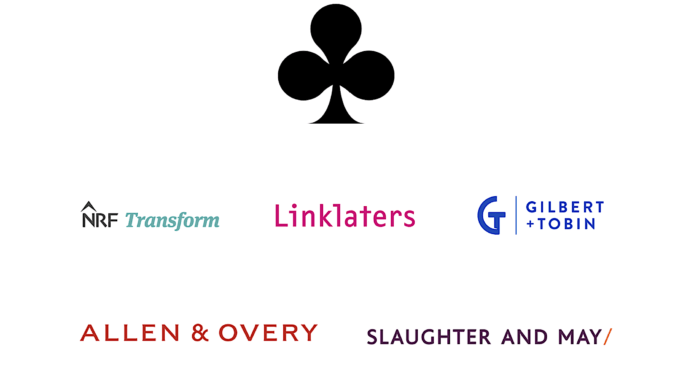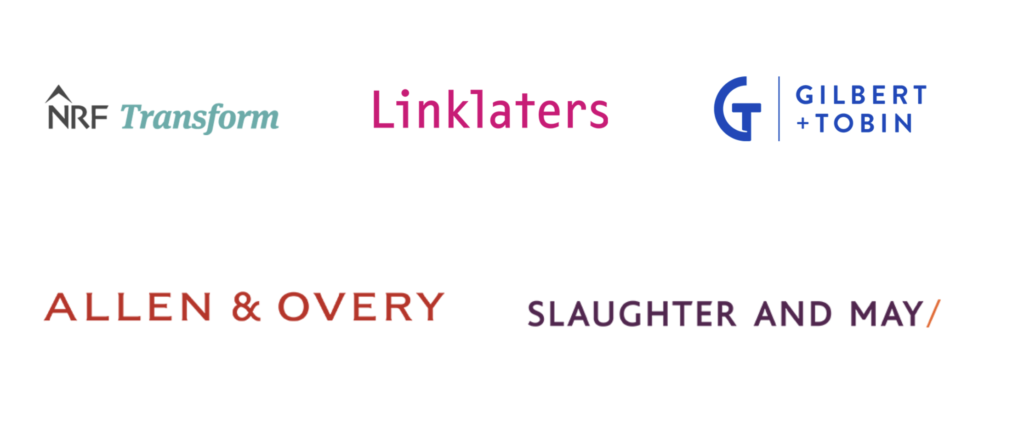
The OneNDA project, which has the goal of developing and sharing a single, universal non-disclosure agreement template, has received impressive backing from across the industry, in what is a resounding signal of support for the initiative.
At present the supporters are in three sections: a drafting group, a wider committee, and also a number of research partners.
The list of members of all three groups is highly notable, with the drafting group including: Linklaters, Allen & Overy, Slaughter and May, Norton Rose Fulbright and its Transform division, and top Australian firm Gilbert & Tobin.
I.e. that’s three of the UK’s Magic Circle firms, just to begin with. Then in the committee group there are multiple major organisations, from CocaCola and AmericanExpress, to Barclays and EY. The group also lists Bupa, Airbus and Deliveroo, among others.
And finally there are the research partners, and this includes: UCL, Ashurst, Hogan Lovells, CMS, and World Commerce & Contracting, and others.

All in all this is a partial who’s who of the commercial legal world in the UK. This site has rarely seen such support for a legal sector project.
Artificial Lawyer asked OneNDA co-founder, Roisin Noonan, who is also the COO of the Law Boutique, if she was surprised at the response?
‘In one way, no; in that NDAs tend to be the bane of every lawyers’ existence. But the level of support has been truly astounding and it’s incredible to see the legal community pulling together towards a common ‘standardisation’ goal, especially considering the stereotype of the pedantic and adversarial lawyer!’ she said.
All well and good, but how will this work?
As the OneNDA project explained – which was also co-founded by Electra Japonas, the CEO of the Law Boutique – the goal is to ‘address a pressing need to reduce rudimentary legal work, while increasing transparency and speeding up business processes’.
As the founders told Artificial Lawyer earlier, they accept that a single NDA won’t be suited for every scenario, but they can at least create one that covers the kind of standard terms that need to be included before two businesses can start to talk to each other, and which often can just slow everything down and also prevent law firms from actually doing real work for the clients.
So far they have 600 businesses signed up, with the aim of having 1,000 organisations adopt the ‘oneNDA’ as their standard by the end of December 2021
Great, but why does this matter so much?
As said, basic NDA needs just slow down business, and even slow down the ability of law firms to start earning fees as they first have to haggle over the terms of what is in effect a ‘permission’ document to allow them to start helping with a negotiation between parties. So, this is tremendously useful.
Secondly, it’s a signal that standardisation in the legal world is possible. While lawyers in each jurisdiction naturally share the basic standards of what the law says and court procedures, when it comes to legal work output, or as this site would say legal products, or ‘legal things’, there are few standards – but that is now changing.
The OneNDA project is now part of a wider movement to standardise around legal products, which we are seeing in a growing number of areas. This proves, as noted by Noonan, that despite the cliché that all lawyers want to endlessly argue over every detail, the reality is that there are a lot of leading lawyers who are very practical and business-focused, and want to move forward with standardisation where it makes sense to.
This is great news and Artificial Lawyer and the Changing Legal think tank, which is also supporting standardisation in the legal sector, wish them the best of luck.
If you would like to get involved and/or adopt the OneNDA, then please see here.